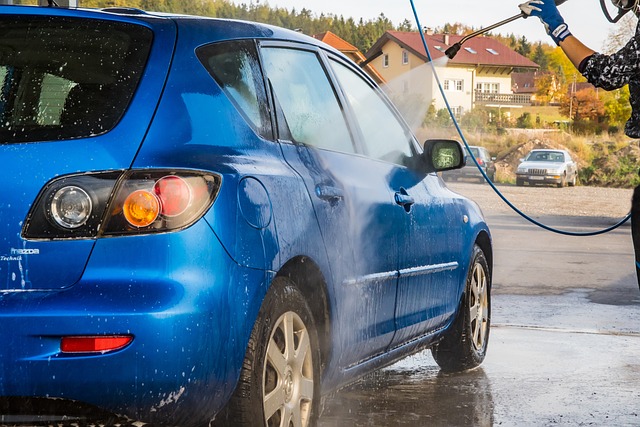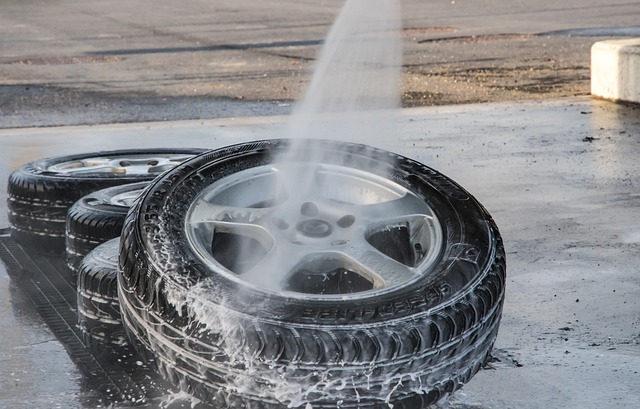Your car is a major investment and you spend a ton of money maintaining it — oil changes, tire rotations, brake pads. Have you, however, ever thought of something as basic as washing your car as an investment? Just how often should you wash your car?
Washing your car should be done at least twice a month as a general rule. Every week or even more frequently, obsessives will engage in it. To avoid causing harm to paint or metal, irregular dirt like bug guts and road salt must be removed right away.
Here’s everything you need to know. Please read on.
How Often Should You Wash Your Car?
Most experts recommend washing your car at least every two weeks or so throughout the year as a general rule. If you live in an area with a lot of salt — either from a nearby ocean or from salt trucks on the winter roads — you probably should wash it more, as salt can corrode the metal and cause rust.
People who frequently travel through the backcountry should also give their vehicle a little more care. The bird business mentioned above contains an acid that, if left unattended for too long, will eat through the paint job on your car. Same goes for dead bugs and tree sap, so they should be washed off as necessary.
Depending on whether you drive your car every day or whether you park it in a garage out of the elements, you may be able to go longer between washings.
And while we might think of car washes as a summertime chore, you actually need to wash your car more often in the winter. One of the worst offenders is road salt, which can cause havoc on your car by cakeing onto the bodywork. More frequent trips to the car wash, particularly those with hand-held pressure wands, will help protect your car from salt buildup.
Your car’s interior is undoubtedly exposed to less salt and dead bugs, but cleaning is still necessary. Use a vacuum hose to remove any debris from the floor mats and the seat crevices, such as dog hair, dry cereal, and small pieces of dried leaves. An upholstery spot cleaner can be used to get rid of any stains that are discovered while vacuuming. Warm water and a gentle detergent make an easy cleaning solution for dirty seats.
Leather seats, though, need to be cleaned and conditioned to keep the leather from cracking and aging, at least every three months or so. Condition the leather every two months if you drive frequently (for example, as part of your job) or if your car’s interior is exposed to the sun.

Common Reasons to Wash Your Car More Often
- Road salt
- Animal droppings
- To remove bugsand insects
- Dirt and mud
- Pollen
- Rain
- Tree sap
- Removing Tarand other road grime
- Stagnant water
- Brake Dust
Can You Wash Too Often?
There’s no need to worry if you’re concerned that your car will get damaged during your twice-monthly wash. Most of the time, you are probably not washing frequently enough to harm anything.
However, abusing your car with chemicals, sponges, brushes, and other objects too frequently will wear it out. While washing your car gradually wears away your Clear Coat, the final layer of protection on the exterior of your car, which is something we all like to see clean and shiny,
Nowadays, the majority of exteriors are finished with materials that are fairly durable, but it is still important to think about whether you might be doing more harm than good. Only wash your car more frequently if it really needs it, ideally no more than once a week.
When Should You Wash Your Car?
Car owners ought to wash or rinse their vehicles on average every two weeks. However, a number of different variables, including where you live, the time of year, and where you park your car, will affect how often and when you should wash your car.
Season
Warm, dry climates require less frequent car washing because dust accumulation is the main issue.
Although it’s still advisable to maintain a regular washing schedule (at least once per month or every two weeks), you might want to pay more attention to how frequently you wax your car. The exterior of the car will benefit from being shielded by car wax or sealant against strong sunlight that could fade and crack the paint.
In a colder climate, you probably spend the entire winter months navigating mud, snow, salt, and rain. All of these cause residue to build up on your car that can be corrosive and start to wear down the protective coating.
If your city’s streets are covered in grit and salt, washing your car on a regular basis is especially crucial. Salt can significantly wear down and damage the paintwork, and it can even start to rust your undercarriage over time.
Car Storage
You cannot ignore the fact that when you leave your car on the street, it is vulnerable to various types of mud and damage.
Though parking your car under a tree might seem preferable to leaving it in the sun, doing so for an extended period of time can be just as harmful to your car. Fallen leaves may seem like a minor inconvenience to clean up, but if you leave them on the paintwork for a while, the paintwork may start to corrode.
Additionally, your car will be covered in grime from bird droppings, tree sap, bug guts, branches, acid rain, and other elements. Nobody is warning other drivers to avoid the large puddle that is about to cover your car in mud because you can’t sit in your car and keep an eye on it.
Car washing schedules can be fairly lax for those who are fortunate enough to have a garage. If the car is kept inside, you’re in luck because you’d be surprised at how much dirt it can gather just from sitting outside! Depending on the time of year and climate, you might only need to wash your car once every month or so.

Everything You’ll Need to Wash Your Car
Your car’s paint could be harmed if you clean it with the incorrect supplies, like dish soap or a dish towel. You can significantly improve the efficacy of your subsequent wash with a few inexpensive purchases, some of which you’ll only need to make once. Here’s what you need:
Tool List
- Nitrile gloves (optional)
- Water hose
- Two buckets
- Two dirt traps
- Microfiber car wash mitt
- Microfiber towels
- Car wash soap
- Wheel brush
- Car window cleaner
All-inclusive packages are available for many of these goods. Here are The Drive’s Top Car Wash Kits for Your Vehicle.
We won’t bail you out of jail or cover your fines, so make sure you’re not breaking any codes pertaining to your washing location by consulting your local laws and/or building regulations.
This guide will go over how to wash a car at home and some frequently asked questions about best practices for washing cars in order to assist you in keeping your car clean.
Are Automatic Car Washes Bad for Your Car?
Nearly everyone has used an automatic car wash at some point in their lives. They avoid all the hassle of a DIY hand car wash and are quick, reasonably priced, and most importantly, convenient.
However, they have recently received a bad reputation for possibly doing more harm than good. When compared to sponges or microfiber cloths used for handwashing, traditional car washes with rotating bristles are frequently harsher. Even though they may be practical, using automatic car washes too frequently can harm the paintwork over time. Particularly stiff bristles have the potential to leave microscopic dings on the surface of your car, which might not be noticeable until the surface protectants have been worn away.
Soft cloth car washes, which make use of cloths that more delicately remove dirt from your exterior, have been viewed as a good alternative. But if the clothes aren’t cleaned properly or thoroughly enough, they can also lead to wear. The cloth might still be covered in dirt and debris from the previous wash, which could easily cause scratches.
Unfortunately, the paintwork will suffer no matter how you wash your car. Similar to the brush or sponge you use, the chemicals used to clean all the mud and dirt off your car have an abrasive component. Maintaining clean and distinct brushes and sponges for the various parts of your car, along with, of course, reading our post on how to wash a car, will help you minimize damage.
Does Not Washing Your Car Ruin the Paint?
There are many reasons why you shouldn’t drive around in a dirty car, even if you’re okay with it. It’s not necessary to keep it showroom-ready all the time, but neglecting to wash it will harm your paint job.
Leaving excessive dirt on your car for an extended period of time will wear down the clear coat, which can cause rusting and paint to fade more quickly than it otherwise would, regardless of how frequently you wax your car.
Additionally to the wear on the aesthetics, it can be risky for you and other motorists. A fine of up to £1,000 may be imposed for having an unreadable license plate, and poor visibility can easily result in collisions.
Giving your car some extra tender loving care will pay off whether you wash it by hand, with a pressure washer, or even in an automatic car wash. If you keep your car in good condition, it will last longer and most likely have a higher resale value when the time comes to sell.

Here’s How to Wash Your Car?
Let’s do this!
- Add the soap to two buckets of water that have dirt traps at the bottom.
- With the hose, rinse the entire car, including the top, body, and bottom.
- Wash the car from the top down using a mitt that has been lathered up.
- To lessen the likelihood of water spots or dried streaks, wash and rinse the car in quarters.
- Brush and rinse the wheels after cleaning them. Always finish this task last to avoid transferring brake dust or other dirt and grime to your paint and damaging its enamel. If you’d rather do them first, you can also use a different brush or towel.
- Rinse the car thoroughly once you’ve cleaned every part of it.
- One towel will quickly absorb the majority of the water around the entire car.
- To dry the details, use a second dry towel.
Read about
Wash Car FAQs
What Can I Use to Wash My Car at Home?
This task can be completed with the help of two buckets, a water hose, a brush, car cleaner, and a sponge. The side windows and windshields can have water and soap smudges removed after the exterior has been thoroughly cleaned by using a glass cleaner.
How Much Does a Hand Car Wash Cost?
Depending on the service provider, the cost of a straightforward hand car wash ranges from $30 to $60. It’s safe to assume that you’ll spend close to $100 if the price of add-on services like wheel cleaning and waxing is included.
What is a Good Substitute for Car Wash Soap?
Baking soda and a bucket of warm water work best as a substitute. The worst are laundry detergent and dishwashing soap because they have chemicals that can damage a car’s paint and wax finish.
Can I Use Hair Shampoo to Wash My Car?
The majority of experts concur that you can use hair shampoo to wash your car, but only as a last resort. Wash your car as usual, but don’t let the soap sit on the surface of your car for too long.
Do Car Washes Ruin Your Car?
Car washes have a bad rep for destroying the finish on the vehicle. This is because they use abrasives and strong chemicals that may scratch and swirl the car’s finish.
So, How Often Should You Wash Your Car?
As a general rule of thumb, it’s essential to wash your car at least once every two weeks. Devotees do this every week, sometimes more often. Also, irregular dirt, such as road salt and insect guts, requires immediate attention to prevent paint or metal damage.
Thank you for reading. If you have any questions, please leave a comment.





